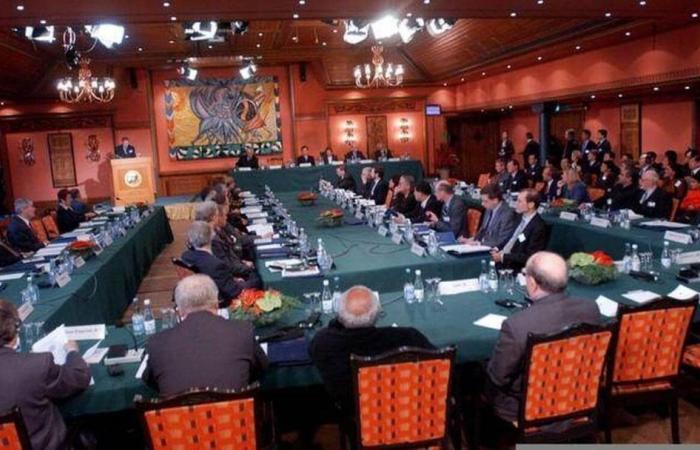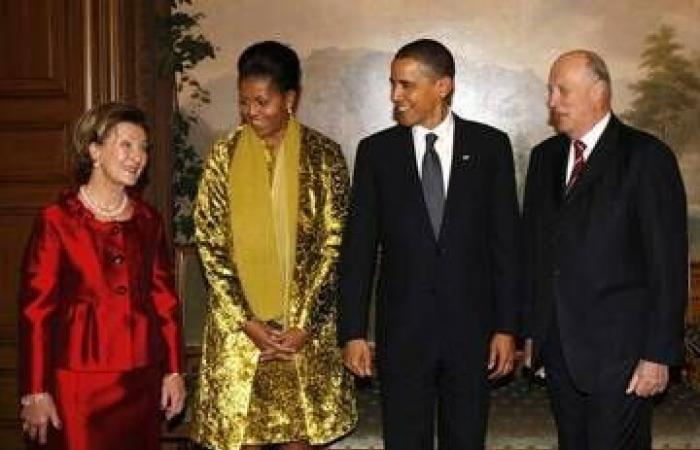Who will succeed Narges Mohammadi, women’s rights activist, imprisoned in Iran this year? This Friday, the Nobel committee must award the final prize of its selection, the Nobel Peace Prize in a world more than ever at war.
In a world at war, awarding a Nobel Peace Prize can be somewhat incongruous. Like last year, it is even rumored that, for the symbol, there might not be a price this year, marked by the war in the Middle East, in Ukraine, but also in Sudan or Burma.
But this option does not seem to be favored by the Nobel committee, which should nominate a laureate this Friday, October 11. Spotlight on this prize, a real accelerator for the defense of human rights, despite some failures during its history.
Jean-Marie Collin is director of Ican in France (International Campaign for the Abolition of Nuclear Weapons). His organization, a coalition of NGOs from around the world campaigning against nuclear weapons, won the Nobel Peace Prize in 2017. “It was Friday October 6”he remembers.
“Immense recognition” of sometimes thankless work
That day, he was to go to the National Assembly. At the time of the awards ceremony, he asked the MP with whom he had an appointment to turn on the television. It is the name of his organization that is pronounced. “From 10:20 a.m., my phone didn’t stop ringing all day. »
For Ican, the Nobel Prize, which now appears alongside their logo, has opened many doors. It was he who made it possible to truly launch a campaign in France for the dismantling of nuclear weapons. He experienced it like “a huge recognition” of the work of Ican activists, faced with much criticism and trials in “naivety” from the “nuclear powers”of which France is a part.
If the Nobel allowed him to obtain greater media notoriety and opened the doors to numerous conferences, it does not work miracles. “It did not allow us to have greater ease of access to the French authoritieshe regrets. But it allowed us to reach a higher level. »
Make the link with “the capital”
Juliette Renaud now works for the NGO Friends of the Earth. Between 2007 and 2010, she worked for three years alongside Argentinian Adolfo Pérez Esquivel, Nobel Peace Prize winner in 1980, as an advisor on socio-environmental issues. She describes a man “very simple” et “inspiring”. The name of Aldolfo Perez Esquivel is known even beyond Argentina’s borders. One day when she has to go to the summit of peoples with him, he is forced to cancel at the last minute. There, she met people who had crossed all of Bolivia to see him. “I was very impressed by it. »
At the time, large mining projects were in preparation near the Andes mountain range. Too far away to talk about it in Buenos Aires, the capital. The involvement of the Nobel Peace Prize in this conflict “made it possible to bring out the voice of local populations” to the capital. “We went to visit them where they are, we made the connection with the media, the deputies, the government”says Juliette Renaud. She sees there “one tool among others”which combines with field wrestling.
“A Nobel Prize means everything and nothingbelieves Juliette Renaud. But it is above all what is done with it afterwards that is important. » Since 1901, not all winners have kept their promises.
“Obhorrent” Nobel Prize
According to Alfred Nobel’s will, the prize must be awarded to “the personality or community having contributed most or best to the rapprochement of peoples, to the suppression or reduction of standing armies, to the reunion and propagation progress for peace. The first was awarded in 1901. The latest was awarded, in 2023, to journalist and human rights activist Narges Mohammadi, imprisoned in Iran.
But among the winners also include Barack Obama (2009), then a very young president of the United States, engaged in several wars, or the former American Secretary of State Henry Kissinger. “The odious Nobel Peace Prize”title Mediatitled Mediapart in 2023part in 2023, upon the death of the diplomat. Henry Kissinger was awarded the Nobel Prize in 1973 for his role in the agreement to end the war in Vietnam, a war which he had helped to escalate, recalls France Culture.
“We should not treat this prize with the same seriousness as the other Nobels”asserts François Heisbourg, advisor to the Foundation for Strategic Research (FRS). He was part of the panel of people consulted, by mail, on the awarding of the Nobel Peace Prize, “20 or 30 years ago”. For him, the prize award committee, made up of five people elected by the Norwegian parliament, made numerous “nonsense” in the past and thus lost its credibility. “The Nobel Peace Prize has failed in its original intention [de faire disparaître la guerre]. Today, it’s a bit of a catch-all price. This leads to decisions that we don’t always understand”he adds. Despite this loss of credibility, the decision of the Oslo Nobel committee is still widely followed. The prize will at least keep this promise: to engrave the cause defended by the winner in history.







